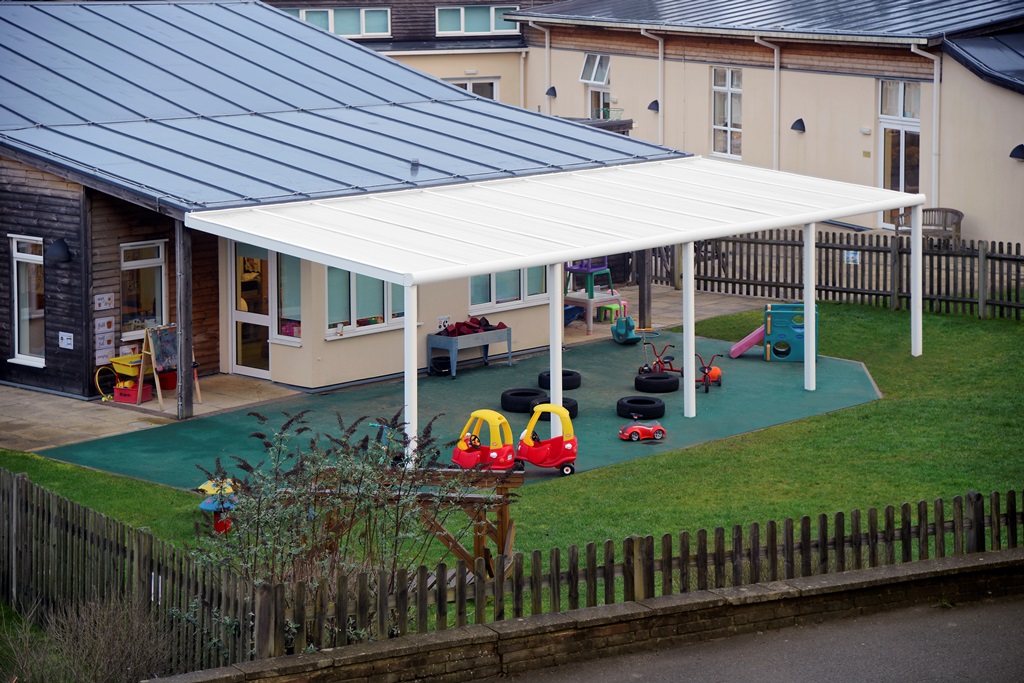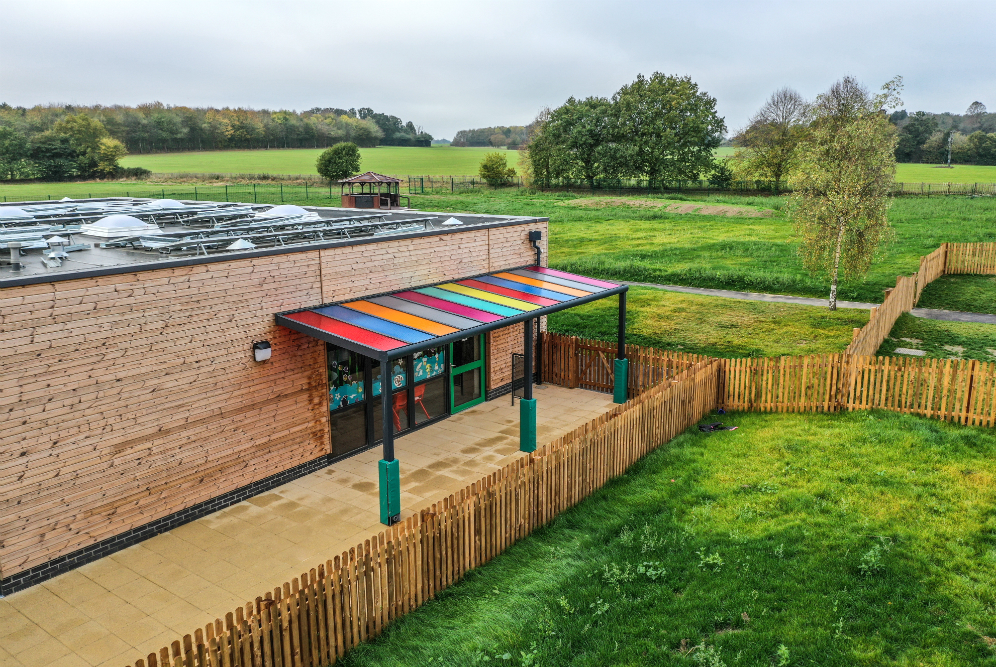
The benefits of outdoor learning – Using canopies to improve mental health and wellbeing
Alongside academic achievement, the health and wellbeing of pupils and staff is of paramount importance for schools.
Though this has always been the case, the topic of mental health has been thrust into the spotlight in recent years, and rightly so.
According to a 2020 NHS study, one in six young people aged between five and 16 in England struggled with their mental health in 2020. Therefore, an onus is on schools to ensure they have facilities that promote positivity and wellbeing to help those suffering and prevent this number from increasing.
One way of achieving this is through the use of external shelters like canopies. Here, we explore this topic in greater detail by expanding on three key benefits of using canopies for outdoor learning.
Embracing the outdoors
From improving cognitive function to boosting our endorphins, there are a host of wellbeing benefits that come from embracing nature. This translates to the classroom too.
A study into the ‘psychological benefits of a biodiversity-focussed outdoor learning program’ for children aged between eight and 11 found:
“…even when time spent outdoors in nature is restricted to 1h a week and repeated across the duration of a full academic year, children show an improvement in their mood and wellbeing.”
Canopies can provide this opportunity. Come rain or shine, the versatile shelter can be installed in playgrounds, next to a woodland area or directly outside a classroom to give children the chance to learn surrounded by nature.
Social development
Another hugely important benefit is the enhancement of pupils’ social skills.
Providing children with a different educational environment breaks away from the standard classroom setup, promoting innovative and imaginative thinking.
Furthermore, research conducted by the Forestry Commission found outdoor learning improved:
- Confidence
- Social skills
- Communication
- Motivation
- Physical skills
- Knowledge and understanding
Teacher wellbeing
While pupil welfare is of significant importance, so too is teacher wellbeing.
According to the NASUWT Wellbeing at Work Survey 2021, 90% of teachers experienced an increase in work-related stress in the 12 months prior to the study.
However, creating an outdoor learning space using a canopy could help to relieve this in the future, and the Natural Connections 2016 report emphasises this.
The study found how job satisfaction of the teachers surveyed increased when given the chance to teach outside. Furthermore, many cited how this has a positive impact on their mental health and wellbeing.
Conclusion
Of course, schools are not wholly responsible for preventing the number of children experiencing mental health issues from increasing. And outdoor learning cannot be the only avenue schools explore to help children in this area. Nonetheless, we hope this article has shone a light on a simple way in which schools can make a difference and play a part in promoting a healthy learning environment.
If you’d like to discuss a canopy for your school, please contact us here and our expert team will happily assist.



